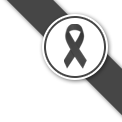Body Donation to King Chulalongkorn Memorial Hospital For educational purposes, medical procedure training, research, and medical treatment.
To ensure that the process of body donation for education, research, and medical treatment is conducted smoothly and in accordance with the donor’s intent, King Chulalongkorn Memorial Hospital has established the following regulations:
